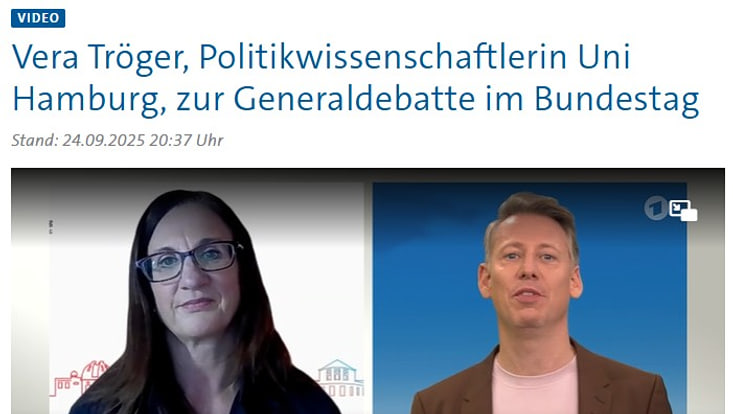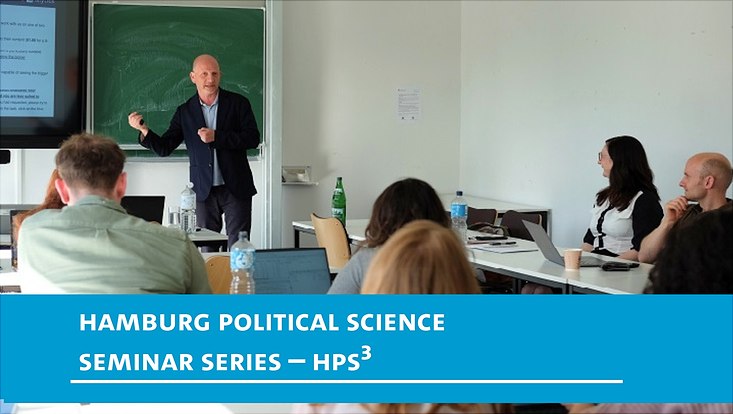HPS³ - Sarah Engler -„Affective polarization and the support for anti-pluralist forms of governance. Evidence from Germany”We welcome Sarah Engler on Wednesday, 31st January 2024 to the HPS Seminar Series
31 January 2024
The Hamburg Political Science Seminar Series (HPS³) features international speakers presenting cutting-edge research in empirical political science and political economy.
We welcome on Wednesday, 31st January 2024 17:15-18:45 CET in VMP9 A316 & via Zoom
Sarah Engler (Leuphana Universität Lüneburg)
Title: „Affective polarization and the support for anti-pluralist forms of governance. Evidence from Germany” (co-authored with Ivo Bantel and Lucas Leemann)
Abstract:
Concerns about the democratic commitment of populist radical right parties and their supporters and ensuing democratic erosion are fortified by debates about the consequences of affective polarisation in Western democracies. Some scholars assume that disliking supporters of political opponents undermines the perception of other parties and their supporters as legitimate political actors. As a result, citizens are more likely to accept the violation of democratic norms. What is missing, however, is the question how citizens differ in their support for democratic principles when they are affectively more polarised. Specifically, how does support for liberal democracy fare vis-à-vis endorsement of populist notions of democracy or technocratic rule? We expect that citizens with higher affective polarisation are more supportive of non-pluralist view of society and the idea of a “general will”. While we expect this effect for supporters of populist radical right and other parties alike, we stipulate that they diverge in the alternative notion of democracy that they support. While supporters of populist radical right believe in the idea of the will of the people and opt for a more majoritarian form of democracy (populist governance), supporters of the other parties that display strong aversion towards supporters of the radical right are more likely to reject the idea of the popular will and prefer more technocratic forms of governance (technocratic governance). Based on novel survey data from Germany we provide empirical evidence for these expectations but also an unexpected result regarding general support for liberal democracy.
Keywords: Affective polarization, technocracy, direct democracy, liberal democracy, anti-pluralism
The HPS³ seminars take place in person at the UHH and are live-streamed on Zoom.
Please find the preliminary program on the HPS³ Website.
We invite everyone interested to attend the HPS Seminar Series and are looking forward to seeing you.


